Globalization and Democracy
GLOBALIZATION
Series Editors
Manfred B. Steger
Royal Melbourne Institute of Technology
and University of HawaiiM a noa
and
Terrell Carver
University of Bristol
Globalization has become the buzzword of our time. But what does it mean? Rather than forcing a complicated social phenomenon into a single analytical framework, this series seeks to present globalization as a multidimensional process constituted by complex, often contradictory interactions of global, regional, and local aspects of social life. Since conventional disciplinary borders and lines of demarcation are losing their old rationales in a globalizing world, authors in this series apply an interdisciplinary framework to the study of globalization. In short, the main purpose and objective of this series is to support subject-specific inquiries into the dynamics and effects of contemporary globalization and its varying impacts across, between, and within societies.
Globalization and Sovereignty
John Agnew
Globalization and War
Tarak Barkawi
Globalization and Human Security
Paul Battersby and Joseph M. Siracusa
Globalization and the Environment
Peter Christoff and Robyn Eckersley
Globalization and American Popular Culture, 3rd ed.
Lane Crothers
Globalization and Militarism
Cynthia Enloe
Globalization and Law
Adam Gearey
Globalization and Feminist Activism
Mary E. Hawkesworth
Globalization and Postcolonialism
Sankaran Krishna
Globalization and Media
Jack Lule
Globalization and Social Movements, 2nd ed.
Valentine Moghadam
Globalization and Terrorism, 2nd ed.
Jamal R. Nassar
Globalization and Culture, 2nd ed.
Jan Nederveen Pieterse
Globalization and Democracy
Stephen J. Rosow and Jim George
Globalization and International Political Economy
Mark Rupert and M. Scott Solomon
Globalization and Citizenship
Hans Schattle
Globalization and Money
Supriya Singh
Globalization and Islamism
Nevzat Soguk
Globalization and Urbanization
James H. Spencer
Globalisms, 3rd ed.
Manfred B. Steger
Rethinking Globalism
Edited by Manfred B. Steger
Globalization and Labor
Dimitris Stevis and Terry Boswell
Globaloney 2.0
Michael Veseth
 Supported by the Globalization Research Center at the University of Hawaii, Manoa
Supported by the Globalization Research Center at the University of Hawaii, Manoa
Globalization and Democracy
Stephen J. Rosow and Jim George
Rowman & Littlefield
Lanham Boulder New York London
Published by Rowman & Littlefield
A wholly owned subsidiary of The Rowman & Littlefield Publishing Group, Inc.
4501 Forbes Boulevard, Suite 200, Lanham, Maryland 20706
www.rowman.com
16 Carlisle Street, London W1D 3 BT, United Kingdom
Copyright 2015 by Rowman & Littlefield
All rights reserved . No part of this book may be reproduced in any form or by any electronic or mechanical means, including information storage and retrieval systems, without written permission from the publisher, except by a reviewer who may quote passages in a review.
British Library Cataloguing in Publication Information Available
Library of Congress Cataloging-in-Publication Data
Rosow, Stephen J.
Globalization and democracy / Stephen J. Rosow and Jim George.
pages cm. (Globalization)
Includes bibliographical references and index.
ISBN 978-1-4422-1808-6 (cloth : alk. paper) ISBN 978-1-4422-1809-3 (pbk. : alk. paper) ISBN 978-1-4422-1810-9 (electronic) 1. DemocracyDeveloping countries. 2. DemocratizationDeveloping countries. 3. NeoliberalismDeveloping countries. 4. GlobalizationPolitical aspectsDeveloping countries. 5. Developing countriesPolitics and government. I. George, Jim, 1946 II. Title.
JF60.R674 2015
321.8dc23
2014008574
 The paper used in this publication meets the minimum requirements of American National Standard for Information SciencesPermanence of Paper for Printed Library Materials, ANSI/NISO Z39.48-1992.
The paper used in this publication meets the minimum requirements of American National Standard for Information SciencesPermanence of Paper for Printed Library Materials, ANSI/NISO Z39.48-1992.
Printed in the United States of America
Acknowledgments
I n many ways, this book got its start in the conversations between us over many years. I would like to thank Jim especially for sharing his work on the neoconservatives and on neoliberalism, which I have found especially inspiring. I thank him also for nominating me for a distinguished visiting professorship at Australian National University (ANU) in May and June 2011 and then for joining this project so enthusiastically. Many at ANUs School of Politics and International Relations created a welcoming, stimulating, and critical environment in which to work and willingly listened and commented upon early versions of ideas that have gone into this book. Special thanks to Michael McKinley, John Ravenhill, Tom Chodor, Guy Emerson (thanks again for the tour of Melbourne), and Barry Hindess, as well as those faculty and students who attended and commented on my lectures. While in Australia Manfred Steger and Anne McNevin graciously invited me to try out some of the ideas that went into this book at the Globalization program at the Global Cities Institute at RMIT. Without Manfreds invitation, and prodding, this book would not have happened.
I also owe a debt, collectively and individually, to an extraordinary group of scholars, interlocutors, friends, and fellow travelers of many years that can never be fully repaid. Danny Warner, Michael McKinley, Annette Freyborg-Inan, Judy Hemming, Peter Vale, and Clinton Fernandes have provided constant intellectual sustenance, friendship, and criticism of all of the thinking that I have brought to this book. To colleagues and students at the State University at Oswego, thanks for making it possible to work and think in spite of the neoliberalization of the university: Walter Opello, Bruce Altschuler, Craig Warkentin, Lisa Glidden, Stephon Boatwright, Miriam Jimenes, Jennie Han, and Christina Dragomire. I also thank the School of International and Public Affairs at Columbia University, and especially Michael Doyle, for hosting me during my sabbatical in 20122013, and SUNY Oswego for granting it. Finally, to Ellen Goldner, whose friendship, trust, forbearance, love, and critical thinking have sustained me for more than thirty years. I dedicate this book to Julian, Gabriel, and Ben, who are and will be harbingers of global worlds.
Stephen J. Rosow
I want to thank Steve for the invitation to join the project. It was an enjoyable and rewarding experience. It was particularly interesting for me because, after years of working on sometimes quite esoteric theoretical issues concerning the ways we think about and behave in the international-relations sphere, this book gave me the opportunity to concentrate on some specific empirical issuesin Africa, India, and Latin Americaand on the implications for peoples in these regions of adhering, simultaneously, to democratic politics and neoliberal economics. This has been a topic of conversation with many friends and colleagues in many places since the 1980s and the Thatcher/Reagan eras. In particular, Michael McKinley and I have sought to evaluate the implications for both global winners and losers in this context, and I thank Mike more generally for his friendship and always-stimulating perspectives on any number of issues. I also want to thank Tom Chodor and Guy Emerson for their insights on the Venezuela chapter in this book. I dedicate the work to my daughter Sara and brothers Alan, Frank, and Robert.
Next page
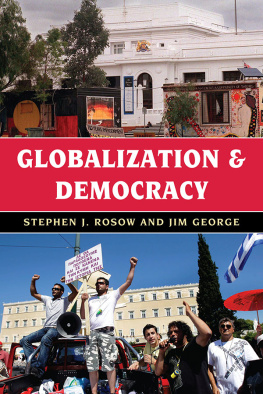
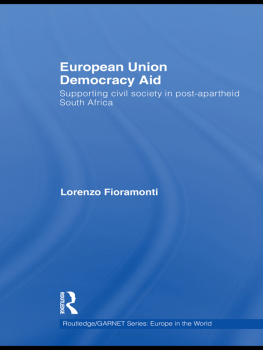

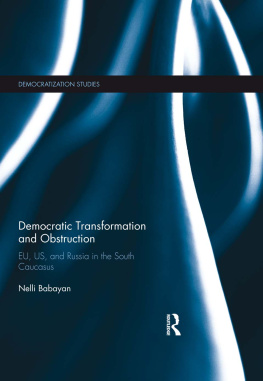
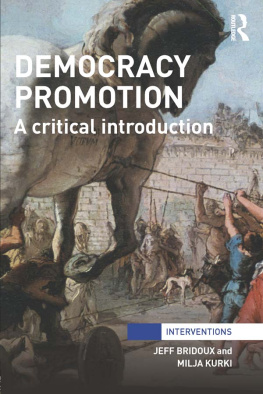
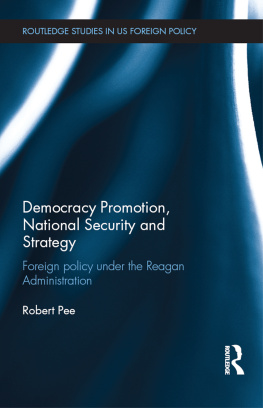
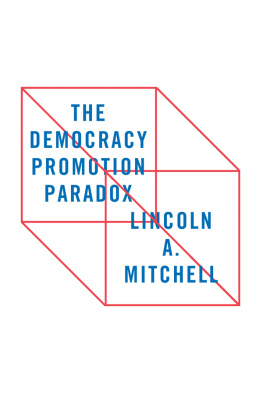
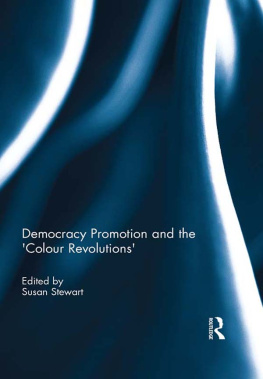
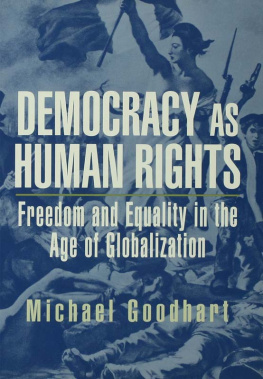
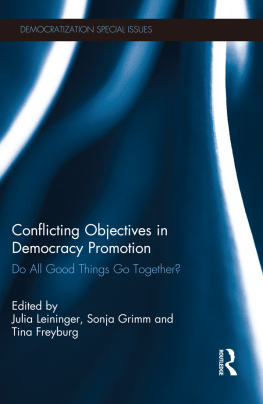
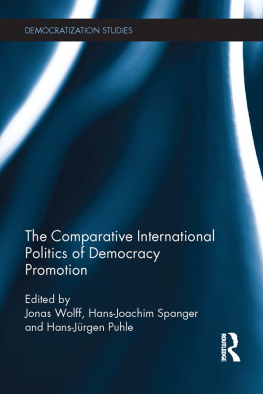
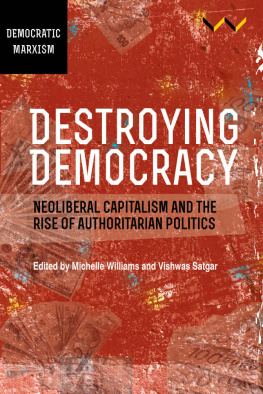
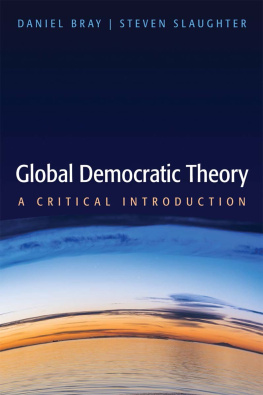
 Supported by the Globalization Research Center at the University of Hawaii, Manoa
Supported by the Globalization Research Center at the University of Hawaii, Manoa The paper used in this publication meets the minimum requirements of American National Standard for Information SciencesPermanence of Paper for Printed Library Materials, ANSI/NISO Z39.48-1992.
The paper used in this publication meets the minimum requirements of American National Standard for Information SciencesPermanence of Paper for Printed Library Materials, ANSI/NISO Z39.48-1992.